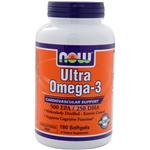PMS + EFAS = AOK

You've come a long way, baby.
Among the most common questions from our female (and occasionally male) customers are those that concern PMS, also known as dysmenorrhea; Are there alternatives to drugs like aspirin and ibuprofen, and which ones do you recommend? Among the most commonly-used supplements to help ease the cramping, bloating and irritability that characterize PMS/dysmenorrhea are herbs like dong quai and vitex, vitamin B-6 and B-12, minerals like magnesium and potassium and the serotonin precursor 5-HTP. You can find women who get great results with one or a combination of these nutrients, but because PMS has a complex and dynamic set of causative factors that vary from woman to woman, there’s no one-size-fits-all solution, and probably never will be. However, research suggests that there are two types of nutrients that – besides being good for you anyway – deserve special consideration in terms of easing PMS symptoms.
Some studies suggest that among the best candidates for nutritional support for PMS/dysmenorrhea are two types of essential fatty acids. Actually, whether you’re male or female, PMS-prone or not, they’re important anyway because, unlike vitamins and minerals, the ideal forms of these fatty acids are poorly-supplied even by relatively good diets.
One of the principal functions of EFAs is that they act as precursors to hormone-like compounds called prostaglandins that directly affect tissues including the female reproductive tract and breast tissue. In men they have a big role to play in prostate health. In fact, they were first discovered in prostate tissue, hence the term prostaglandins.
In terms of PMS symptoms, prostaglandins and hormones hold all the cards; they can initiate or resolve, intensify or reduce, PMS issues like inflammation, bloating, cramping, and pain.
Wouldn’t it be nice if you could influence whether prostaglandins make PMS symptoms better or worse?
You can, by making sure you get enough of the right kinds of EFAs, which invariably means taking supplements.
Since your body can’t make them, your dietary intake of essential fatty acids dictates whether prostaglandin production will favor those that worsen PMS symptoms or those that mitigate them.
The first essential fatty acid to use is one you should, in all seriousness, be using already; omega-3 fatty acids from fish (ideally), or krill oil.
Not only are omega-3 fatty acids crucial for brain, mood, and heart health but studies have also shown that “higher intake of marine n-3 fatty acids correlates with milder menstrual symptoms.” Note that this study refers specifically to marine sources (fish or krill) and not flax as the source of omega-3s. So women who suffer from PMS, you should really consider taking a good fish oil supplement, if you don’t already.
There are lots of good fish oil supplements on the market, you could use any of them, but one we like very much is NOW Foods Ultra Omega 3. It combines the best features of all the different fish oil products; super-high concentration of the exact omega 3s you need (DHA and EPA), enteric-coated burp-less softgel and unquestionable purity since it’s from purity-fanatics NOW Foods.
Then, you also want to take a GLA supplement. GLA is an omega 6 fatty acid that converts into soothing anti-PMS prostaglandins. While average diets diet gives us plenty of omega 6, linoleic acid, from most vegetable oils, meat and dairy fat, most of that contains very little GLA. Your body can convert some linoleic into GLA, but interestingly, women who suffer from PMS make this conversion more slowly than control subjects in studies.
So women who suffer from PMS (as well as menopause and peri-menopause) have used GLA sources like Evening Primrose Oil or Black Currant Oil as a GLA source. We’d strongly suggest Borage Seed Oil instead since it has a much higher concentration of GLA than any other source.
Ideally, take your fish oil and borage seed oil with solid food, 6-8 hours apart from each other, since they compete for the same enzyme that readies them for use by the body. Not only will you be creating an “anti-PMS” biochemical environment in your body, you’ll be benefiting your health in many other ways too. Both types of supplements are extremely safe and free of side-effects. Discuss with your physician if you’re on anticoagulant (blood thinning drugs).
You can also use these EFA supplements alongside other PMS-support nutrients mentioned at the top of this post.
Do you have experience using essential fatty acid supplements for PMS support? Do you have any questions or feedback about this article? Please send them to mtaylor@allstarhealth.com





